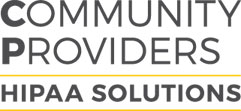There is no way to deny the fact life seems to move faster each and every year. New and exciting technology allows us to cut the amount of time it takes to do everything from downloading a movie to our phone to fixing dinner. The ability to obtain reams of information has never been easier. In business, and health care is no exception, quick decisions are valued as a strong leadership trait. But, quick may not always be the best way to make a compliance based decision.
In the world of compliance we deal with right vs. wrong as defined by the laws, rules and regulations that impact our operations. In those situations a decision often appears to be a black and white proposition which lends itself to quick decisive action. Unfortunately, not every compliance decision is black and white. When we deal with people, often compliance decisions are based on ethical considerations as opposed to the letter of the law. It is in these ethical decisions that the role of reflection is important.
Many authors have shared their thoughts on the process of ethical decision making; this blog is not intended to join in that chorus of opinions. Rather, the intent is to highlight the role of reflection and why it is important for a compliance officer, and a provider, to exercise reflection in order to improve the effectiveness of the organization’s compliance program.
It is important to point out that decisions on whether an action violates a law, rule or regulation are different that decisions that focus on ethics. The former is that black and white analysis mentioned above while the latter brings into the process the issue of morals or standards. Just as each of us has a moral compass that guides how we make decisions, each organization has a set or morals, norms or expectations which provide the foundation for how business is done. What is seen as acceptable behavior at one organization may not be accepted at another organization; this is an example of how ethics informs the decision making process.
In compliance, we are often called upon to make a decision without having all the relevant information. Decisions may need to be made in a real-time setting that doesn’t lend itself to a deep dive into every nuance of the situation, yet we are called upon to always do the right thing. Making a timely decision is important, but the goal should also be to make the best decision possible. When faced with an ethics based decision, the key is to gather as much information as time will allow, analyze that information, considering all sides of the issue, and the potential consequences for each possible course of action. After deliberately going through the analysis, taking a pause to reflect, even if it is for just a few short moments, and listening to that internal voice we all have can lead to better decision making. Taking the time to reflect gives that internal compass an opportunity to present itself and influence the decision making process based on the morals, norms or expectations, either personally or organizationally, that we bring to the situation. Failing to take the time to reflect can lead to decisions that are not based on all the factors that should be considered.
Reflection can take time and there needs to be a balance between reflection and the need to make a decision, but decision making without reflection rarely results in the best decision. Incorporating what is considered “doing the right thing” in the organization aligns the decision making process with those expectations and results in decisions that consistently serve the mission and objective of the organization. Having said that, it is essential the morals, expectations and norms of the organization serve the goal of employees doing the right thing, the right way at the right time.








